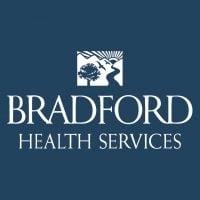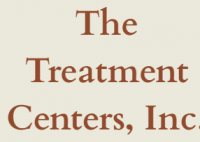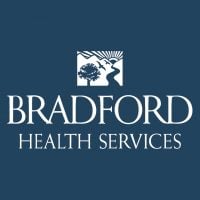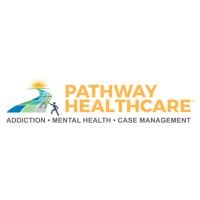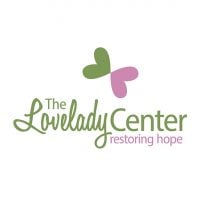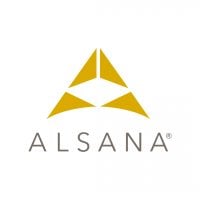Regional Medical Center - Jacksonville
Drug Rehab Center in Jacksonville, Alabama
Regional Medical Center - Jacksonville is a Level III Trauma Center in Alabama that provides addiction and substance abuse treatment, with evidence-based therapies and inpatient programs, and offers educational and outreach services to increase awareness of addiction in the community.
Multiple patients have reported Regional Medical Center - Jacksonville as permanently closed.
Research other rehabs in Jacksonville, Alabama, or get help finding an open facility.
About
Regional Medical Center - Jacksonville is located in, you guessed it, Jacksonville, Alabama. This hospital is a diversified healthcare provider and is the only designated Level III Trauma Center in the region. Regional Medical Center - Jacksonville offers a range of services, including addiction and substance abuse treatment. They have a full team of physicians, nurses, and therapists dedicated to providing the best possible care to patients suffering from addiction. Along with traditional therapies such as individual, group, and family counseling, Regional Medical Center – Jacksonville also offers medication-assisted treatment to assist with the detox and recovery process.
At Regional Medical Center - Jacksonville, they specialize in evidence-based treatments for patients trying to overcome addiction. Addiction specialists help patients identify the roots of their addiction and teach healthy coping skills to prevent relapse. They also provide a unique inpatient program for those who require a more intensive level of care, as well as a comprehensive alumni program for additional support and guidance after completing treatment.
In addition to addiction treatment, Regional Medical Center - Jacksonville also offers a range of educational and outreach services to help increase awareness of addiction in the community. They are a Trauma Certified Facility by the State of Alabama and are also licensed to become a Certified Substance Abuse Treatment Program (CSATP). They have also been the recipient of the Joint Commission's Gold Seal of Approval, and were recognized in 2019 as one of the Best Healthcare Providers in the region by U.S. News & World Report.
Genders
Ages
Modality
Additional
Conditions and Issues Treated
Within the past decade, opioid addiction has become a nationwide epidemic. The United States hosts one of the world’s highest rates of opioid use or abuse and has one of the highest rates of opioid-related deaths. In the United States, opioid drugs are classified as Schedule II-IV controlled substances due to their highly addictive properties and potential for abuse. These include morphine, opium, heroin, oxycodone, hydrocodone, methadone, and fentanyl. Physicians usually prescribe opioids to help control pain.
Over time, opioid users develop a tolerance for the drugs, which makes it difficult, if not impossible, to function without them. In turn, opioid users often resort to illicit means of obtaining the drugs. These means can include drug dealers, friends, and family members who do not have legitimate prescriptions for the drugs. Opioid addiction can quickly lead to heroin use, especially those seeking more intense highs than prescription opioids offer. Due to the high risk of overdose, heroin users are at a much higher risk for illness and death.
Levels of Care Offered
This center offers a variety of custom treatment tailored to individual recovery. Currently available are Aftercare Support, Detox, Drug Rehab, Inpatient, with additional therapies available as listed below.
Detoxification is a critical first step in treatment for drug addiction. Drug detoxification helps the individual withdraw from the drug by providing a controlled environment where symptoms can be managed through medication and close observation. Detoxification is an inflection point where the individual can get on a recovery track, but it’s also one of the most dangerous points in the recovery process.
In addition to going through physical withdrawal from certain drugs, a detox program also provides the individual with drug testing to monitor their progress. This way, if the individual is not ready for sobriety (such as if they relapse), the treatment professionals can catch it early on and use that opportunity to help re-orient the individual towards recovery.
Inpatient treatment centers offer a safe, secure, and often medically supervised environment for drug or alcohol-addicted individuals. Many of these facilities are equipped to provide detoxification, treatment for co-occurring mental health disorders, and aftercare programs.
The patient typically spends 28 to 30 days at the facility and will receive extensive drug counseling. They will also learn how to live without drugs and how to make the right decisions in life.
Recovering drug addicts need aftercare support when they leave treatment. The support can include guidance through 12-step programs, outpatient rehabilitation programs, and support groups. Aftercare supports the individual in their desire to maintain sobriety by reducing relapse risk with positive choices.
The success of drug treatment does not end when the addict leaves the rehabilitation center. There is no such thing as a “one and done” type of rehabilitation process. Recovery is a lifelong journey that begins with treatment and continues by the addict committing to outside support groups or drug rehab programs.
When choosing a program, it is crucial to choose one that will provide long-term aftercare support. This ensures that you have the tools you need to sustain your recovery.
Therapies & Programs
Individualized Treatment is essential because it gives addicts the ability to participate in a program that meets their unique needs. An addict should work with professionals who understand what they’re going through, especially if the addict is actively using. Finding the right treatment program for an addict is difficult, but it’s even harder without communicating with those who have experience treating your specific situation.
Couples therapy is a treatment approach where the patients and their partners are engaged together. When a person becomes a victim of substance abuse, it affects the patient and his people, particularly his partner. Their relationship can become strained due to lack of communication, financial issues, loss of trust, lack of intimacy, and physical abuse in more severe cases. Couples therapy addresses these issues and tries to rebuild the trust between the partners. The partner’s involvement in the process will result in greater chances of treatment success and sustained recovery.
The therapies typically involve all family members, potentially including siblings, children, and parents who play a role in their daily lives. These sessions can be essential because they address past issues that may have affected an addict or alcoholic’s recovery process. They provide support during this time when it is needed most!
A family therapy session, often called a family meeting or intervention, is a necessary process that helps loved ones of addicts see their situation in a new light. It’s also one of the most challenging things families will ever have to do when they’re facing a loved one battling addiction or alcoholism.
Group therapy sessions provide recovering addicts with a chance to cope with everyday situations that many face. Group therapy sessions are held in rehab facilities, clinics, churches or community centers that offer drug addiction treatment.
People who attend these groups are encouraged to voice their feelings and support other addicts in recovery. This helps group members strengthen their own recovery program while cheering on others who are struggling with sobriety.
Patient Experience
Experiential Therapy at Regional Medical Center - Jacksonville
Drug addicts can benefit from experiential therapy, which involves real-time activities to process trauma and emotions. This type of therapy is available at Regional Medical Center - Jacksonville and can help reduce the need to resort to drugs and alcohol. Activities may include role-playing, use of props, and others. The individual learns to release suppressed thoughts that lead to negative feelings and embrace the present moment. Experiential therapy is beneficial in treating various disorders, including drug addiction, eating, and behavioral disorders.
Payment Options Accepted
For specific insurance or payment methods please contact us.
Is your insurance accepted?
Ask an expert, call (888) 674-0062
RMC Associated Centers
Discover treatment facilities under the same provider.
Learn More About RMC Centers
Additional Details
Specifics, location, and helpful extra information.
Jacksonville, Alabama 36265 Phone Number(256) 435-4970 Meta DetailsUpdated November 25, 2023
Staff Verified
Patient Reviews
There are no reviews yet. Be the first one to write one.
Jacksonville, Alabama Addiction Information
Opioids, such as heroin, fentanyl, and prescription opioids are related to more than half of all drug-related overdoses in Alabama. Alcohol is the most frequently used substance in Alabama; 85,000 Alabamians use cocaine every single year. In Alabama, there are four times as many vehicle crashes involving alcohol as there are normal vehicle crashes.
Treatment in Nearby Cities
- Livingston, AL (163.1 mi.)
- Union Springs, AL (113.5 mi.)
- Anniston, AL (9.5 mi.)
- Hamilton, AL (130.0 mi.)
- Luverne, AL (146.0 mi.)
Centers near Regional Medical Center - Jacksonville
The facility name, logo and brand are the property and registered trademarks of Regional Medical Center - Jacksonville, and are being used for identification and informational purposes only. Use of these names, logos and brands shall not imply endorsement. RehabNow.org is not affiliated with or sponsored by Regional Medical Center - Jacksonville.


